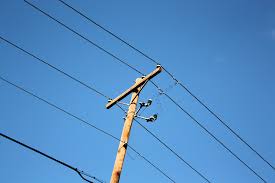
Numerous new reports show that there could be a revolution in the energy markets. With utilities holding on to outdated business models and putting up barriers for those who want to install solar products they are forcing people to defect from the grid and become ‘prosumers’ – people who can produce, store and consume their own electricity.
“The electricity industry certainly is changing. In fact it is not much of a stretch to say that the next couple of decades will witness something of a revolution in the way small customers interact with the electricity industry,” said Michelle Groves, the chief executive of the AER.
Rooftop solar power is so competitive these days that studies show it is already cheaper than grid electricity’s network service charges alone – before adding the costs of electricity production and retailing. The cost of batteries for solar storage is only getting cheaper as technology develops in the same way solar panels did a few years ago. With stats like these, why wouldn’t people consider going solar or even defecting from the grid altogether? Ernst & Young Survey shows 9 in 10 Australians are looking to install solar if they haven’t already.
Of course you would! It is a no-brainer! A report commissioned by the Public Interest Advocacy Centre and completed by Bruce Mountain of Carbon & Energy Markets shows that with the gold plating of poles and wires together with the falling costs of solar – the grid can no longer compete with solar power. Unless utilities change their ways, embrace renewables and update their business models over one third of customers are going to defect from the grid causing assets to be ‘stranded.’
According to the report, utilities need to cut the value of their regulated asset base by around half in order to stay in the market. Creating barriers against solar only encourages customers to defect from the grid. People are already finding ways around the barriers like installing timers and redirecting excess electricity production to hot water services so they don’t draw expensive energy from the grid in order to get hot water.
“Since it is now possible for households to produce their own electricity for less than their network service charges (and less than half their total grid-supplied electricity charges) it would be surprising if increased production from rooftop PV did not account for a large part of any future increases in household consumption,” the report notes.
“Advances (and cost reductions) in battery storage would be likely to significantly increase the uptake of distributed generation and eventually disconnection from the grid in some cases, starting with ‘fringe of grid’ areas.”
The CSIRO Future Grid scenarios predicted that half of all electricity would be produced – and stored – on site. With some energy networks looking to be privatised – they do not want to write down the value of their assets. This means continually increasing prices for customers with no relief. It is no wonder Queensland has one of the highest number of rooftop solar systems in the country.
There is no doubt installing solar power will save you money. With interest free, leasing and competitive pricing available – there is never been a better time to install solar power.
Tags: costs of electricity production, costs of solar, CSIRO Future Grid scenarios, electricity industry, Electricity Market Revolution, embrace renewables, excess electricity production, grid electricity, hot water services, install solar products, prosumers, Rooftop solar power, solar panels, solar storage
